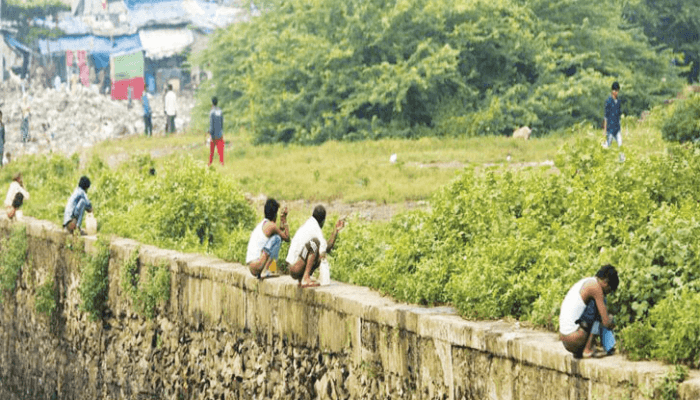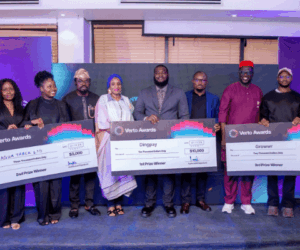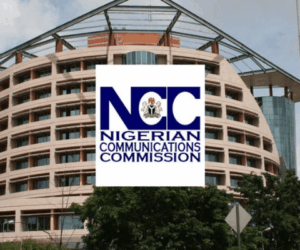Barely five years to the 2030 deadline target to ending open defecation by the United Nations’ Sustainable Development Goal six, only two states have so far been declared open defecation free by National Task Group on Sanitation (NTGS).
Monday Johnson, Water, Sanitation and Hygiene (WASH) Specialist, UNICEF, Lagos office disclosed this on Wednesday at a two-day Media Dialogue on Accelerating Actions to Improve Urban Water, Sanitation and Hygiene in Nigeria taking place in Oyo State.
The programme is organised by the Oyo State Ministry of Information in collaboration with the United Nations Children’s Fund (UNICEF).
Johnson quoting from the National Bureau of Statistics (NBS) and the National Outcome Routine Mapping (WASHNORM) 2022 said only Katsina and Jigawa states have so far been declared open defecation free, living out 34 states with the Federal Capital Territory, (FCT), Abuja.
He said by the statistics Katsina was declared free in the month of October this year while Jigawa was declared in 2022.
Speaking on the topic, ” Urban Sanitation Crisis: Current Situation in Nigeria. Trend and Challenges WASH” however, expressed hope that by the end of the deadline more states would take cues from the two states by adopting the relevant roadmaps.
He said two local governments in Osun and Ogun states had also been declared open defecation free.
According to him, the first state to be declared open defecation-free was Jigawa state and Katsina state has just been declared an open defecation state. There are other states that have made substantial progress. Maybe there are a few Local Government Areas that are remaining.
“But unfortunately, in the southwest states, only two LGAs have been declared open defecation-free.
Only two LGAs. The two local government areas are in Osun and Ogun states. Apart from these, there is no other state that has been declared free in the country.
Speaking further, he said, “So this started with the state having that roadmap, working the roadmap, ensuring that all the structures needed, the budget needed, the finance needed, the collaboration with other agencies and external bodies, NGOs needed are in place.
“Working together will allow those states that are yet to be declared free to be able to achieve this. WASH policy is key in ensuring that there is that enabling environment for any person that is interested in WASH to come in.
“Yes, for those states that are yet to have their sanitation WASH policy, sanitation strategy and open defecation roadmap, the starting point would be for the states in terms of achieving SDG 6 to develop the open defecation roadmap.
“If there is no WASH policy, the external funders don’t know what is in there for them. But once you have a policy that is favorable to them, it can attract external agencies to come in and support the state in achieving the sanitation needs of that state.
“Once they develop the roadmap, they will be able to identify what are the human capacity needs that will drive sanitation, hygiene and water needs of the state. They will also be able at this point to know the number of years that they will need to achieve this open defecation free state”, he added.
While lamenting that the overall status of WASH in Nigeria is low, noted that only 10 per cent of the population have access to complete basic water, sanitation and hygiene services in accordance with the global JMP definition.
He added that those in the rural areas are three times more disadvantaged than those in the urban areas.
He opined that to reduce open defecation in the country governments should ensure that owners of petrol filling stations have safely managed sanitation facilities such as good toilets.
Johnson also urged that such facilities should be established in all markets, schools, places of worship stating that this can help reduce the practice of open defecation by the citizens.
He noted that the drivers of good health are good sanitation and hygiene.
He, however, added that over 1.5 million households in Oyo State lacked safely managed sanitation services, with 50 per cent of the population living in urban areas.
The WASH experts posited that declaration of Jigawa and Katsina defecation free is a wake up call for action for all the southwestern states to actually push for ending open defecation by 2030 in line with the SDG 6 target.
Earlier, Blessing Ejiofor, communication officer, UNICEF said the dialogue was to bring media practitioners in the southwest zone to talk about the urban sanitation needed across Nigeria and specifically in the southwest zone.
Ejiofor added that there was a dire need for all the states to start looking specifically at how they would be able to address our urban sanitation needs in this era where we are having increased urbanization in all the states in the federation.
“With this dialogue we are hoping that the media will help to advocate to governments on the need for a specific and tailored sanitation strategy, work strategy for urban centers that will address all needs of the urban centers from the high brow area to the slums.
“If we have a strategy defined for these areas, then we are very sure that the implementation of the strategy will address the needs of the urban areas”, she stated.
In his open remarks, Adegoke Ayodele, director, Community Mobilization and Hygiene Education, Oyo State Rural Water Supply and Sanitation Agency (OYORUWASSA), commended UNICEF for the partnership in oragbizing the media dialogue.
Ayodele stated that the issues surrounding water sanitation and hygiene in Oyo State today is not what it used to be in the last five years noting that there has been tremendous improvement.









